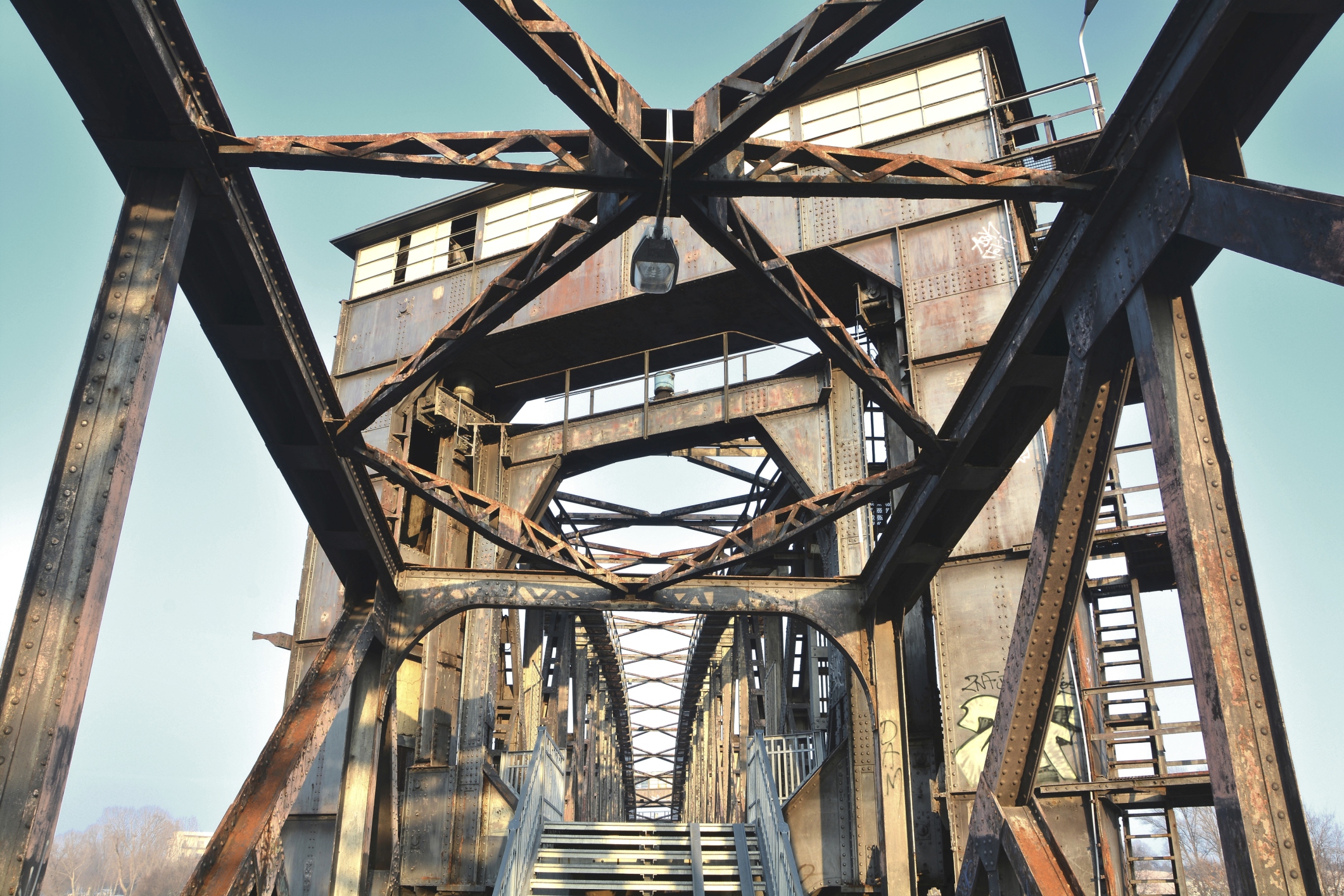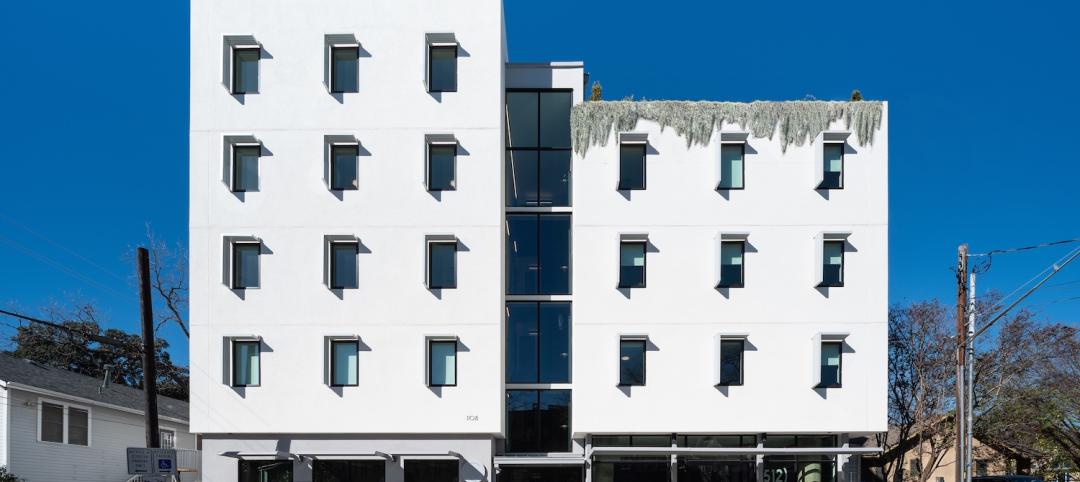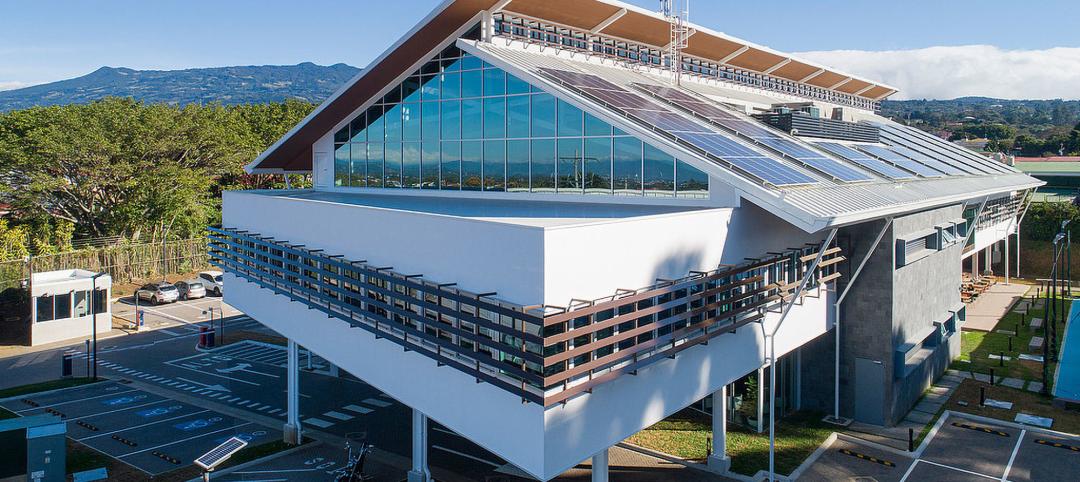At the National Press Club, a new report was released that outlines innovative new ways that the federal government, industry, and other stakeholders can work together to solve the crisis of the failing state of U.S. infrastructure.
Entitled "Making The Grade," the report is the result of experts from 45 different organizations, including corporations, professional organizations, think tanks, financial advisors, and academic institutions. It offers a six-point plan with fresh ideas to regain America's infrastructure leadership and revive the country’s global competitiveness.
The report's name is intended as a rallying cry in response to last year's quadrennial report card by the American Society of Civil Engineers (ASCE), which gave America's overall infrastructure a D+ grade. The ASCE estimates that US$3.6 trillion must be invested by 2020 to make critically needed upgrades and expansions of national infrastructure - and avoid trillions of dollars in lost business sales, exports, disposable income and GDP.
While much has been written and discussed about the problem, Making the Grade provides substantive recommendations and workable solutions to help meet today’s and tomorrow’s infrastructure needs.
The report's six-point recommendations include:
-
Making infrastructure a cabinet-level priority
-
Forming U.S. infrastructure regions
-
Establishing a national infrastructure bank
-
Selling "opportunity" bonds
-
Creating a national infrastructure index
-
Engaging the American people to build support for the importance of infrastructure policy
Collectively, these recommendations apply modern tools, technologies, approaches and fresh thinking to offer a new vision and path forward for the way U.S. infrastructure should be planned, financed, designed and built.
For the full report, please visit: http://autode.sk/MakingTheGrade
Commentary from Making The Grade Supporters
-
"Rebuilding America’s infrastructure should be our top economic priority: it’s essential to our national competitiveness, will help our businesses grow, and will create millions of much-needed middle class jobs. We absolutely cannot lose our global edge on infrastructure and the current trends are not headed in the right direction. As the Making the Grade report – composed by experts – makes clear, there are serious economic costs associated with our infrastructure gridlock. This is a domestic emergency. The good news is that there is strong bipartisan support for funding and financing infrastructure investment, provided we do it in a fiscally-responsible way. My bill, the Partnership to Build America Act, marries long-term goals from both parties: expanded infrastructure investment, tax reform, and more public-private partnerships. I’m proud to have my legislation highlighted in the report and I thank CG/LA and the other partners for raising awareness on this most vital issue.” -- John Delaney, Congressman, 6th District (D-Maryland)
-
"Rarely have I read a document in which the words more powerfully complement the purpose - this is a true blueprint for the work that will lead our country forward, creating real value now and for the next generation - by 'regaining' and 'sustaining' public infrastructure leadership." -- Norman Anderson, President and CEO, CG/LA Infrastructure
-
"Our infrastructure has fallen behind the rest of the world, threatening our economic vitality and even becoming a danger to our citizens. We can't rely on the same-old way of doing things. We need to bring a renewed spirit of innovation and purpose to this challenge. We believe the Making The Grade report provides the right framework, fresh ideas and infusion of energy needed to jumpstart this discussion and create action as a unified industry. We look forward to working closely between the private and public sector to start implementing our recommendations with all due haste." -- Terry D. Bennett, LS LPF MRICS ENV SP LEEDAP, Senior Industry Strategist for Infrastructure, Autodesk
-
“We not only must do better at building what we need, we need to do better in deciding what we need. The Making the Grade Report shows us a way forward in doing just that. This is not and cannot be just about us, about this generation and our needs. It must be about future generations and their options as well.” -- Bill Bertera, Executive Director, Institute for Sustainable Infrastructure
-
“We can’t solve today’s challenges, let alone tomorrow’s, with yesterday’s thinking. It’s well documented that our critical human infrastructure receives failing grades today and needs attention. Through a combination of new and integrated project delivery models and technical and financing innovation we have the ability to address the significant challenges we face. It will take true collaboration among government, industry, the private sector and the public, but investments in infrastructure will lead to strong returns. This work has been started with the Making the Grade report, and it must continue.” -- Ralph Eberts, Executive Vice President, Managing Director of Water, Americas, Black & Veatch
-
"The Making the Grade Report represents the forward looking thinking of nearly 50 companies and organizations. The six-point plan to support rebuilding America's infrastructure provides the necessary direction forward, showing the country how we can dramatically increase our investment through the kind of private and public initiatives that benefit all stakeholders." -- Andrés Gluski, President and CEO, AES Corporation
-
"Innovation in infrastructure requires long term effort and attention to the capabilities that must be developed among a coalition of stakeholders to achieve that goal. US infrastructure in particular is a 'wicked problem' - complex and open-ended - that requires a guiding framework and a high level of collaboration and originality for its resolution.” -- John Kao, fmr Harvard Business School Professor and Chairman, Institute for Large Scale Innovation
-
“21st century success depends on 21st century infrastructure. Making the Grade outlines a thoughtful, balanced and timely program for addressing this critical need.” -- Dr. James A. Moore, SVP/Director National Community Planning & Urban Design, HDR
-
“Infrastructure systems are the backbone of our economy and a critical part of our daily lives. While it’s tempting to assume that we should just address the largest funding gap first, it’s important to remember that all of our infrastructure is linked and each sector has a significant role to play. We need leadership from federal, state and local levels of government who will communicate the urgency of revitalizing our nation’s infrastructure, craft innovative solutions and make the investments the system needs so that the United States is competitive on a global level. Industry efforts like the Making the Grade Symposium and its report help head us in this direction.” -- Patrick Natale, P.E., F.ASCE, FASAE, CAE, Exec Director of American Society of Civil Engineers
Related Stories
MFPRO+ New Projects | Nov 21, 2023
An 'eco-obsessed' multifamily housing project takes advantage of downtown Austin’s small lots
In downtown Austin, Tex., architecture firm McKinney York says it built Capitol Quarters to be “eco-obsessed, not just eco-minded.” With airtight walls, better insulation, and super-efficient VRF (variable refrigerant flow) systems, Capitol Quarters uses 30% less energy than other living spaces in Austin, according to a statement from McKinney York.
MFPRO+ News | Nov 21, 2023
California building electrification laws could prompt more evictions and rent increases
California laws requiring apartment owners to ditch appliances that use fossil fuels could prompt more evictions and rent increases in the state, according to a report from the nonprofit Strategic Actions for a Just Economy. The law could spur more evictions if landlords undertake major renovations to comply with the electrification rule.
Codes and Standards | Nov 21, 2023
Austin becomes largest U.S. city to waive minimum parking requirements
Austin, Texas recently became the largest city in the United States to stop requiring new developments to set a minimum amount of parking. The Austin City Council voted 8-2 earlier this month to eliminate parking requirements in an effort to fight climate change and spur more housing construction as Texas’s capitol grapples with a housing affordability crisis.
MFPRO+ News | Nov 21, 2023
Underused strip malls offer great potential for conversions to residential use
Replacing moribund strip malls with multifamily housing could make a notable dent in the housing shortage and revitalize under-used properties across the country, according to a report from housing nonprofit Enterprise Community Partners.
Giants 400 | Nov 16, 2023
Top 100 Science + Technology Facility Architecture Firms for 2023
Gensler, HDR, Page Southerland Page, Flad Architects, and DGA top BD+C's ranking of the nation's largest science and technology (S+T) facility architecture and architecture/engineering (AE) firms for 2023, as reported in Building Design+Construction's 2023 Giants 400 Report. Note: This ranking factors revenue from all science and technology (S+T) buildings work, including laboratories, research buildings, technology/innovation buildings, pharmaceutical production facilities, and semiconductor production facilities.
Resiliency | Nov 16, 2023
How inclusive design supports resilience and climate preparedness
Gail Napell, AIA, LEED AP BD+C, shares five tips and examples of inclusive design across a variety of building sectors.
Retail Centers | Nov 15, 2023
Should retail developers avoid high crime areas?
For retailers resolute to operating in high crime areas, design elements exist to mitigate losses and potentially deter criminal behavior.
MFPRO+ News | Nov 15, 2023
Average U.S multifamily rents drop $3 to $1,718 in October 2023: Yardi Matrix
Multifamily fundamentals continued to soften and impact rents last month, according to the latest Yardi Matrix National Multifamily Report. The average U.S. asking rent dropped $3 to $1,718 in October, with year-over-year growth moderating to 0.4%, down 40 basis points from September. Occupancy slid to 94.9%, marking the first decline in four months.
MFPRO+ Special Reports | Nov 14, 2023
Register today! Key trends in the multifamily housing market for 2024 - BD+C Live Webinar
Join the BD+C and Multifamily Pro+ editorial team for this live webinar on key trends and innovations in the $110 billion U.S. multifamily housing market. A trio of multifamily design and construction experts will present their latest projects, trends, innovations, and data/research on the three primary multifamily sub-sectors: rental housing, senior living, and student housing.
Giants 400 | Nov 14, 2023
Top 90 Justice Facility Architecture Firms for 2023
DLR Group, Stantec, HDR, HOK, and Elevatus Architecture top BD+C's ranking of the nation's largest justice facility architecture and architecture engineering (AE) firms for 2023, as reported in the 2023 Giants 400 Report. Note: This ranking includes revenue from all public safety/justice facilities buildings work, including correctional facilities, fire stations, jails, police stations, and prisons.

















